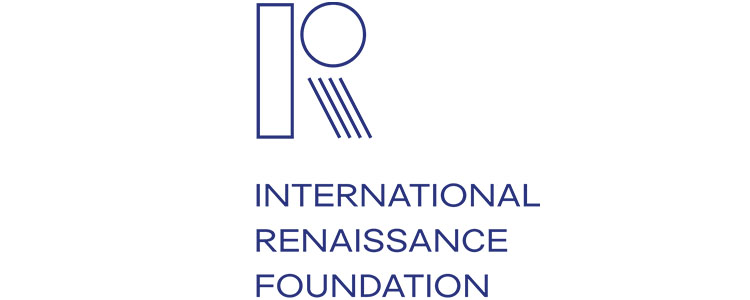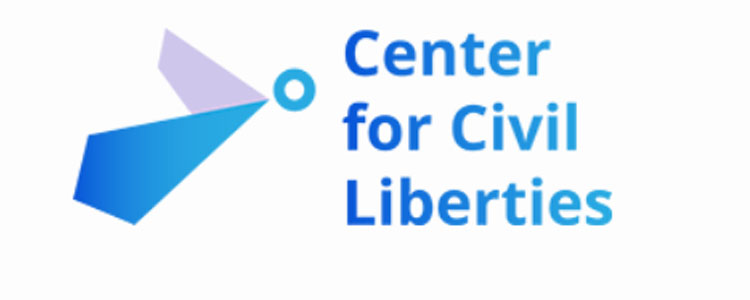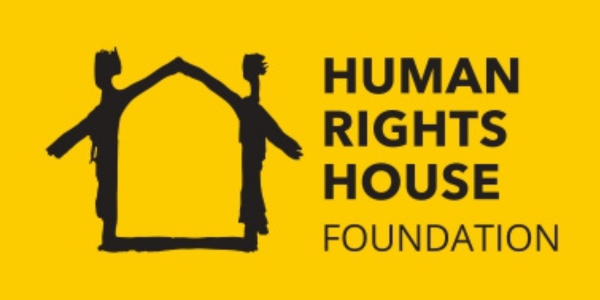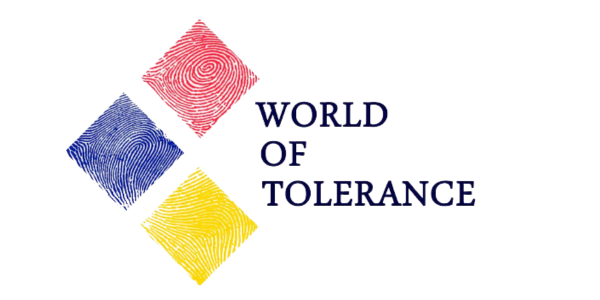About Human Rights Vector NGO
The non-governmental organization “Human Rights Vector” is a human rights organization founded in 2016, the main goal of which is the implementation and protection of fundamental freedoms and human rights by promoting practical implementation of norms and principles set forth in international documents ratified by Ukraine and all other obligations of Ukraine in these fields.
The organization began with the project “Trial in simple words” in 2015, which is still one of the organization’s main directions today. Human Rights Vector and the “Trial in simple words” project work to protect the right to a fair trial, in particular, the right to public court hearings and the principle of transparent court processes.
For the first time in Ukraine, thanks to the effective cooperation of civil society institutions and judicial bodies, the courts now independently broadcast open court hearings for an unlimited number of people. All videos can be viewed on the court websites and on the official YouTube channel “Judicial Power of Ukraine”. Human Rights Vector is the only organization that actively develops this mechanism.
This activity is carried out in cooperation with judicial authorities. On November 29, 2016, a memorandum of cooperation was signed between the Council of Judges of Ukraine and Human Rights Vector. Human Rights Vector became the first NGO to sign this kind of memorandum with the Council of Judges of Ukraine.
The mechanism of broadcasting court sessions using the court's technical resources became the basis of many other activities, including commentary on court broadcasts by the court commentators of “Trial in simple words” and training of specialists in legal professions.
Through video commentaries, court commentators (lawyers, jurists, experts in the field of justice) explained to the viewers the procedural aspects of the hearings, which were broadcast by the technical means of the courts. This generally contributed to the development of Ukrainian legal education vlogging.
Human Rights Vector has developed a unique methodology that utilizes court hearing videos, broadcast through court technical means, along with commentary for the education and training of future law specialists in higher education institutions. This methodology was developed and endorsed with the participation of Taras Shevchenko Kyiv National University, the Academy of Advocacy of Ukraine, Kyiv University of Law of the National Academy of Sciences of Ukraine. Experts from Human Rights Vector prepared the publications “Using court broadcasts in teaching law: methodical recommendations” and “Learning through practice: experience of using court broadcasts in teaching law”, which will be further distributed with the support of the Ministry of Education and Science of Ukraine and the National Academy of Legal Sciences of Ukraine.
Human Rights Vector has established cooperation with many higher education institutions in Ukraine, which has been established by memoranda of cooperation. This cooperation has led to the development of an extensive network of contacts with educators responsible for training future specialists in legal and journalistic fields.
For 7 years, our organization has systematically worked with courts to improve their level of communication with society. Our training programs have covered almost all courts of Ukraine and are in great demand. For example, in 2016-2018, representatives of 323 courts of 20 regions of Ukraine (48% of all courts in Ukraine) took part in 15 trainings during 2016-2018 as part of "Communicative tools in the work of courts: dialogue between the court and the community" (including a representative from each court of Luhansk and Donetsk regions).
Human Rights Vector, in collaboration with its partners, conducted the first comprehensive study of the judiciary's capacity to deliver justice amidst the armed conflict in eastern Ukraine. To identify issues, the organization, alongside its partners and engaged experts, monitored 214 court hearings of various case categories within the Donetsk and Luhansk regions, specifically those linked to the ATO area, as well as in other courts in cases related to the armed conflict in eastern Ukraine. The study included monitoring the physical and technical condition of 52 court buildings responsible for administrative functions in the Luhansk and Donetsk regions, spanning the period from November 2016 to April 2017. Furthermore, they analyzed nearly 750 electronic media publications on the subject of their research (report: https://hrvector.org/en/reports/19-02-04-court).
In subsequent years, various projects were implemented with the support of several entities, including the Council of Judges of Ukraine, the Department of the Office of the Prosecutor General of Ukraine for the supervision of investigations of crimes committed in the context of the armed conflict in Ukraine, the OGPU, the Representation of the President of Ukraine in the Autonomous Republic of Crimea. These projects aimed to ensure the right to access information about the events surrounding the armed conflict. They focused on establishing cooperation and enhancing the competencies of the parties involved in investigating, adjudicating, and reporting on court cases related to the armed conflict, as well as improving the level of trust in and attitude towards the judicial branch of government through proper coverage of court decisions in cases related to the armed conflict in eastern Ukraine. Throughout these projects, the team actively collaborated with courts, law enforcement agencies, and the media to cover legal proceedings associated with the armed conflict in Ukraine. https://hrvector.org/podiyi/21-02-03-w-2021 https://hrvector.org/podiyi/21-07-28-undpb
With the beginning of a full-scale war in Ukraine, Human Rights Vector continues to work to ensure the right to a fair trial. This commitment includes advocating for open hearings, fostering dialogue between the judiciary and the community, and advancing judicial communications. A critical strategic focus is to enhance the capacity of courts and other stakeholders in reporting on legal proceedings related to the Russian Federation's aggression against Ukraine, with particular emphasis on war crimes.
In 2022, Human Rights Vector conducted a study and prepared a report titled “Communication by the judicial authorities of war-related cases: 10 questions and answers”. This report received full approval through Decision No. 33 of the Council of Judges of Ukraine, dated October 6, 2022. This signifies a clear recognition by judicial authorities of the imperative to provide coverage for court cases related to war crimes. The recommendations outlined in the report underscore the significance of continuous and systematic communication regarding cases linked to the war in Ukraine, with particular emphasis on war crimes, which generate substantial interest from both Ukrainian society and the international community.
In 2023, in cooperation with the judicial authorities, Human Rights Vector is actively working to improve the communication process related to trials and decisions concerning war crimes. You can see the report here: “Media monitoring and analysis of court websites regarding the coverage of war crimes cases”.
In the context of legal education activities and establishing a dialogue between the judiciary and the community, the team at Human Rights Vector also actively worked on the development of judicial journalism. For instance, they conducted a nationwide online survey of journalists regarding their collaboration with the courts (https://hrvector.org/en/reports/19-06-12-mediacourts). As a consequence of this survey, a series of educational and communication events were organized for both the media and the courts. The findings were widely utilized by the courts in planning their communication strategies.
In 2019, the NGO "Vector of Human Rights" launched a journalistic works contest as part of the "Trial in simple words" project, in which journalists and bloggers from all over Ukraine took part. The results of the 2019 competition can be found at the following link: http://hrvector.org/publikacziyi/19-11-19-konkurs-sud (Ukrainian); in 2020: https://hrvector.org/en/publications/22-09-03-contest-of-journalistic-works-trial-in-simple-words-2020-participating-materials; and in 2021: https://hrvector.org/podiyi/22-06-14-konkurs-2021 (Ukrainian).
It is essential for us to assess the needs of our target audiences and establish communication and coordination platforms. For example, we conducted a conference to share the experience of specialists in helping professions “Psychological and legal assistance to war victims: a year of experience after the full-scale invasion of the Russian Federation into Ukraine and modern challenges” (Ukrainian) on February 17-18, 2023. The recordings of the two-day conference can be viewed on the Human Rights Vector YouTube channel at the following links: https://bit.ly/3XFjNFJ and https://bit.ly/413VGn8, as well as on the Human Rights Vector Facebook page. The 2-day conference was attended by 117 participants from Ukraine and abroad from various professional communities: legal, psychotherapeutic, medical and others, who represented both state bodies and public organizations.
Human Rights Vector prepared two important publications in 2023:
- “Psychological and Legal Aid Online during the First Year of the Full-Scale Invasion of Ukraine by the Russian Federation: Part I. An overview of the needs and challenges faced by psychological and legal aid providers” — https://hrvector.org/en/events/23-03-24-the-results-of-a-survey
- “Psychological and Legal Aid Online during the First Year of the Full-Scale Invasion of Ukraine by the Russian Federation: Part II. Directory of Psychological and Legal Aid Providers Assisting Survivors of the Russian Federation’s War against Ukraine” — https://hrvector.org/en/events/23-05-03-directory-of-providers
These activities have helped to identify important needs of professional communities in training and support. Consequently, the project “Helping those who help” is currently underway, with the objective of enhancing the capacities of professionals in helping professions. As of September 2023, 230 specialists out of 628 applicants have engaged in the educational activities of this program. More details at the link: https://hrvector.org/en/events/
The development of international solidarity is also important, so Human Rights Vector also implements international projects, including “In search of human rights”, “In search of solidarity”, and “The role of human rights defenders in European integration processes”, in cooperation with other NGOs in Ukraine, Sakartvelo, and Moldova. The projects focus on historical memory, the development of the human rights movement, and legal education activities.
Links:
Official site of NGO “Human Rights Vector” - https://hrvector.org/
Instagram – https://www.instagram.com/hrvector_official
Facebook – https://www.facebook.com/hrvector.org
Telegram – https://t.me/HumanRightsVector
YouTube - https://www.youtube.com/channel/UCqjeimokzHuf4-v6TmfXZ5w

















